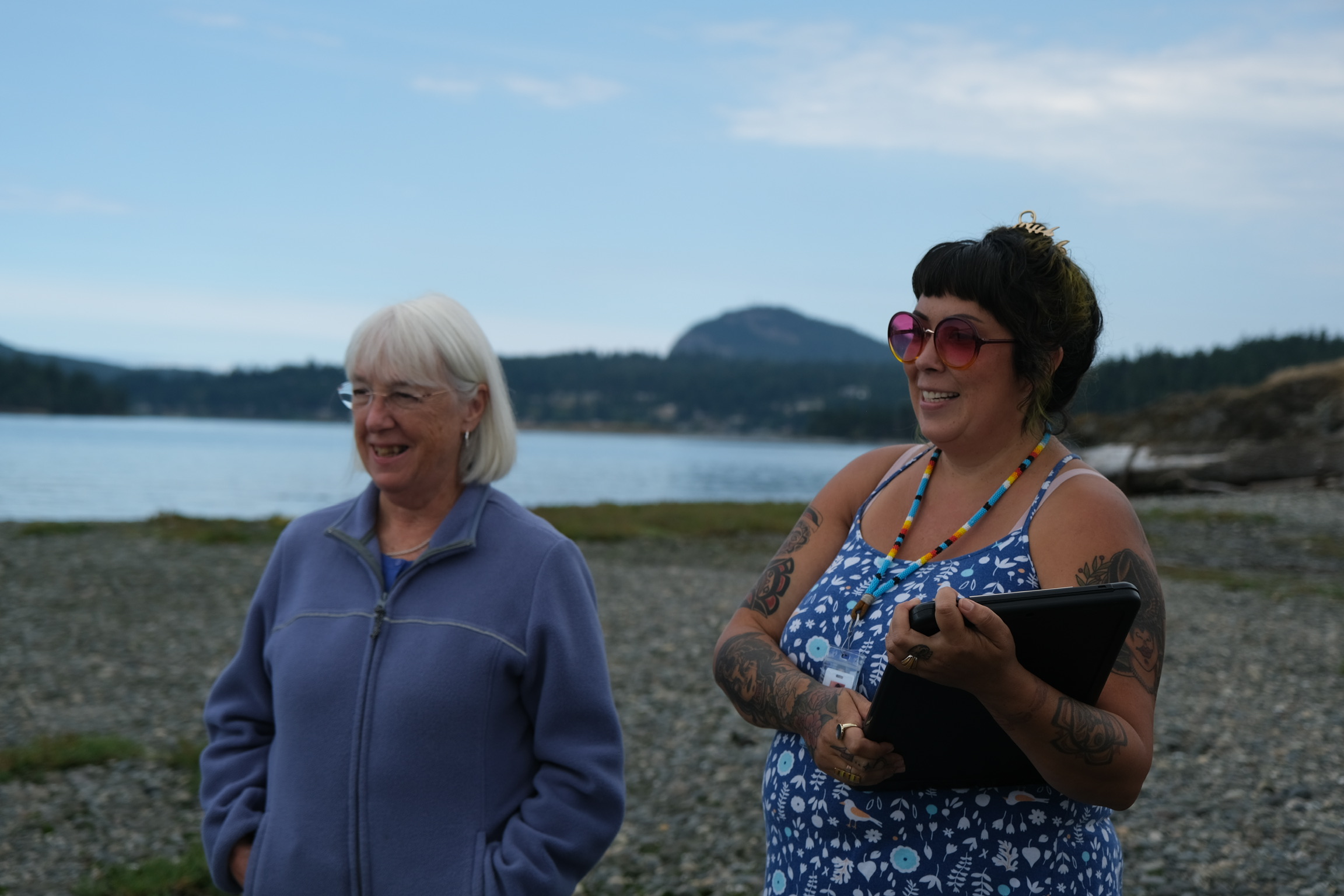Senator Murray: “Washington’s waterways and coastline are absolutely vital to our state’s economy, culture, and way of life—and places like Lone Tree Point carry special significance to Tribes including the Swinomish people.”
***PHOTOS AND B-ROLL OF THE EVENT HERE***
La Conner, WA – Today, U.S. Senator Patty Murray (D-WA), Chair of the Senate Appropriations Committee, visited Lone Tree Point, where the Swinomish Tribe is working on several conservation and restoration projects in partnership with the Northwest Straits Commission and the Skagit County Marine Resources Committee. The Northwest Straits Commission provides funding, training, and support to seven county-based Marine Resources Committees and 15 Tribes. Senator Murray led the authorization of the Northwest Straits Commission in 1998 and has secured federal funding for the Commission repeatedly in the decades since. During her visit, Senator Murray saw how federal funds she helped secure are at work restoring important ecosystems and beaches in collaboration with Tribal partners, and discussed the work that remains with Tribal leaders, environmental experts, and staff from the Skagit Marine Resources Committee and the Northwest Straits Commission.
“Washington’s waterways and coastline are absolutely vital to our state’s economy, culture, and way of life—and places like Lone Tree Point carry special significance to Tribes, including the Swinomish people,” said Senator Murray. “The Swinomish Tribe and Northwest Straits Commission are doing incredible work to restore and protect these critical habitats, and it was great to see the resources I secured for the Puget Sound being put to work. As Chair of the Senate Appropriations Committee, I’m going to keep working in the other Washington to secure the federal dollars we need to protect our state’s incredible natural resources for generations to come.”
“The Northwest Straits Commission is deeply thankful to Senator Murray for her commitment to community based marine conservation, the Swinomish Indian Tribal Community for their ongoing partnership, and the Marine Resources Committee volunteers who dedicate their time to delivering on project opportunities,” said Lucas Hart, Director of the Northwest Straits Commission. “This network is an example of collaborative conservation at its best!”
“Over the years, Swinomish has partnered on many important projects with the Northwest Straits Commission and the Skagit MRC including derelict gear removal, European green crab education, and Olympia oyster restoration. Ensuring a clean, healthy marine environment is critical to preserving traditional practices and protecting the Treaty-reserved rights of the Swinomish people,” said Steve Edwards, Chairman of the Swinomish Indian Tribal Community.
Across the Fiscal Year 2022 and Fiscal Year 2023 government funding bills, Senator Murray secured a total of $6 million in Congressionally Directed Spending (CDS) funding for the Northwest Straits Commission—that funding was essential to the removal of the “Windjammer” sailboat that had been partially submerged near the Kukutali Preserve since 2009 on Swinomish Tribal tideland. As Senate Appropriations Chair, Senator Murray will be fighting to protect and build on that funding in future spending bills. Additionally, Senator Murray is pushing to reauthorize the Northwest Straits Commission.
Through the Bipartisan Infrastructure Law Senator Murray helped secure a number of provisions that would benefit salmon and ecosystem restoration, including $172 million for the National Oceanic and Atmospheric Administration’s (NOAA) Pacific Coastal Salmon Recovery Fund (PCSRF), a grant program that provides funding to states and Tribes to protect, conserve, and restore endangered and threatened salmon populations—overall the Bipartisan Infrastructure Law delivers nearly $3 billion in funding opportunities for coastal infrastructure and climate change resilience.
Senator Murray has made clear that Congress must take bold climate action and was instrumental in passing the Inflation Reduction Act, which delivers the largest investment in combating the climate crisis in American history. The Inflation Reduction Act provides a total of $3.3 billion for NOAA—including $2.6 billion to support NOAA’s climate, habitat restoration, and fisheries missions; $200 million for NOAA Facilities and National Marine Sanctuaries; and $20 million for more efficient NOAA environmental reviews.
###


